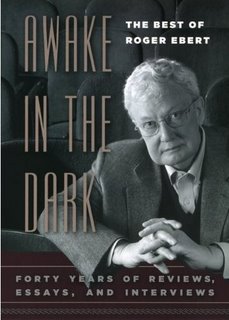
...with this.
Alright, here's a scary Halloween story for you, from my grade three year — H73, as I like to call it. I dressed up and attended my classroom Halloween party. A classmate poked me in the eye (by accident). I broke his ukelele (on purpose). From there things steadily deteriorated. Finally, my teacher sent me home early.
This incident seemed to set the tone for the rest of the year. I was a scrappy, insolent, miserable little shit. The next year I was in a different school. It felt like a new start, and I took hold of it as such. Big improvement — live and learn.
But, like Augustine's pears, that broken ukelele haunted me into adulthood. Even in my 20s, I had nights of niggling self-reflection when I wondered if I shouldn't track the guy down, give him a phone call and apologize. It took me a while to realize chances were pretty good that this bust-up ukelele meant a great deal more to me than it ever did to him. This doesn't excuse what I did — given the chance, I'd still apologize. But it readjusts my perspective into something a little more realistic and gracious. This is what psychotherapy is for.
Up for more? Flash forward to the present Halloween. My older daughter expressed a desire to play ringette. My wife and I pointed out all the drawbacks — her ringette-playing schoolmates have already played on this same team for at least two years, she would have to hustle, fight disappointment at being the least capable player, etc. Yes, yes: she was good with it all. “Put me in, Coach!”
We shelled out for some used equipment, and attended the first practise. Walking into the change room was like walking through the Looking Glass: on the other side of the doorway was another Me I hadn't anticipated. I rolled up my sleeves and brusquely got my daughter suited up. All the while I made impatient, snippy little comments.
“Dad, my helmet's too tight.”
“Well, don't think you're getting a new helmet. Because you're not.”
Whaa... Where'd this monster come from?!?
I did my best to be civil toward the other ringette parents (many of them going out of their way to make our introduction to the sport as painless as possible).
“Dad, why are you wincing?”
“I'm smiling. Now shut up and pay attention to your coach.”
The practise began. As expected, my daughter was the least capable of the bunch. I braced myself for the hot tears of disappointment, and the long (but not unwelcome) journey of re-selling the equipment. The buzzer finally sounded at the end of the hour, and my daughter staggered off the ice. “So, my poor, tired dear,” I said, putting on (I hoped) a sympathetic face, “how was it?”
“It was great! I loved it!”
“Uh ... does this mean you want to stick with it?” My daughter looked at me with such total incomprehension, I suddenly realized that somewhere between getting out of the car and helping her off the ice, I had gone and decamped to another planet.
Later that night, I described the situation to my wife. “Well,” she said, “it's always hard to face a new situation and deal with new people.”
“It's not new,” I moaned. “It's painfully familiar. This is an awful, awful thing we're doing.”
“I don't understand,” she said. “Isn't it good to see our daughter commit to a challenge and follow through?”
“It's not!” I yelped. “It's terrible! We're all going to die and go to Hell!”
My wife got to her feet. “I think you need to talk to somebody else,” she said.
I called my brother, and within five minutes we had it all unpacked. Ringette — the equipment, the sport itself — is not that different from hockey. And my brother and I, like most middle-class Canadian boys in the 70s, were enlisted to play minor hockey. Unlike most middle-class Canadian boys in the 70s, we were never very good at it.
I played it for four years, and my skillsets experienced only modest improvement. During my fourth year, at 12 years old, I was elligible to try out for the All Star Team. The try-outs took place on a Saturday afternoon. I asked my buddy if he was going. “Of course,” he said. “Aren't you?”
I wasn't, but I thought it behooved me to shrug and repeat after him. “Of course,” I said.
My father was surprised to hear this, but he agreed to escort us. I suited up and joined the others on the ice. After some warming up, we gathered at one end of the arena to do sprints. The coach paired us up, readied his stop-watch, then sent the first pair on their way. It was immediately obvious who was fast and who was slow. If a kid was especially slow, the coach cleared his watch before the kid made it to the end of the lap and signaled for the next pair to get going. Being 12 year old boys, we hooted and hollered at these obvious losers.
Then it was my turn. I knew I wasn't the fastest guy there, but I was also confident I could beat the loser I'd been teamed up with. Wrong. He left me to skate through his slush. And the pair that came behind me were practically breathing down my neck.
The next test was backwards skating. I fancied myself a sturdy defenceman and determined that I would prove myself in this event. And I did. This time I got lapped.
When the following fall arrived and it was time to enroll for hockey, I asked my father if I couldn't take a pass this year. He considered it. “Alright,” he finally said. “I wasn't sure if this was something that needed a little exposure in order for it to 'take', but maybe four years is enough. I just wanted to give you boys a chance I never had.”
It beats me why his parents didn't see fit to indulge him on that front. I'm guessing he had a clear aptitude for hockey as a kid, because the adult evidence remains strong. When I was 18 and he was in his 40s, he could skate circles around me. I doubt any of that has changed now that I'm in my 40s and he's in his 60s.
Now it's my daughter skating circles around me. She soars up the ringette learning curve like a bird taking flight. She's cheerfully aggressive, and a quick study of the game. The apple has fallen closer to the grandfather's tree than it did to her father's, and the only one who is surprised by any of this is Yours Truly — a 41-year-old man who follows his nine-year-old daughter into the arena, and whinges and bickers like a seven-year-old boy. I ask you: just how scary is that?








